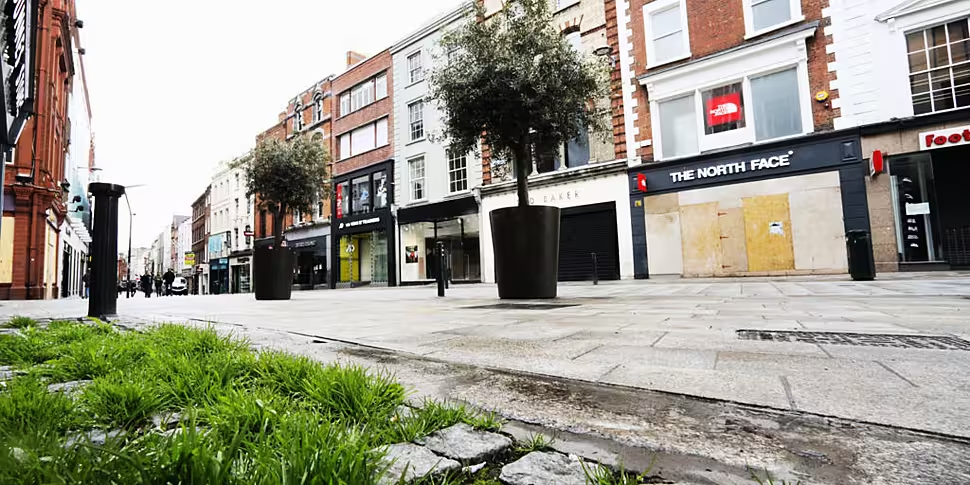An economist has said landlords should take a hit to help businesses stay afloat during the coronavirus crisis.
UCD adjunct professor and economist John Fitzgerald told The Hard Shoulder: "Retail Ireland... were looking for a load of money and I'm very sympathetic to retailers who are closed and haven't been able to sell anything.
"However it is their landlords who should take the hit.
"Yes the State should pay to keep them in business; the State are paying a subsidy for their employees, or their employees may be on the special welfare benefits.
"So that takes their labour costs off their hands.
"What other costs do they have to stay in business - rent - and landlords should take a hit.
"If the State hands out what the retail sector were looking for, then they'll just pay their rent and the landlords get away with it.
"Landlords are going to face a situation, even if the State pays nothing, that a load of businesses... could go bust if their isn't assistance and if they have to pay their rent, in which case landlords will lose".
It comes as new figures show a deficit in public finances of more than €6.1bn to the end of May.
This compares to a deficit of just €63m in the same period last year.
Prof Fitzgerald said there were a few surprises in the figures.
"Corporation tax is up very significantly which, if that were continued for the year, the Government might bring in one or two million more which wouldn't go amiss this year.
"The other item is the income tax, which is a surprise.
"You would have expected, given the very big rise in unemployment, that the income tax would be down much more."
He explained: "That is probably because those who have lost their jobs or on short-time or whatever are probably on lower incomes.
"And those who are on higher incomes are in jobs where they can work at home, and they're still working at home and they're still being paid and paying tax.
"So it means probably the hole in the public finances, which is going to be absolutely masive, will be slightly less massive than we expected.
"It doesn't greatly change the picture, but it's better that the surprises are on that side rather than the other side".
"There are other things going on which I think we need to take account of.
"The household sector - that's on average you, me, all those people out there listening - things are not as good as they were in terms of income."
"Expenditure is down massively, and we see that from the VAT figures, and what you're now seeing is that deposits in the banks are rising.
"And this isn't just Ireland... there is a massive rise in household deposits in the banks."
'Consumer boom'
"Income is down, but they're not able to go out, they're not able to spend... so they're saving the money they would have spent on their haircuts.
"That's building up and Department of Finance figures actually suggest that by the end of this year, household savings will be €10bn to €15bn more than they would normally be.
"And by the end of next year they'll be close to €20bn".
He added: "There's a potential consumer boom if people go out and spend the money".
He said any such comparative situation was during World War II in Ireland, when people could not spend money.
"People had to save and in '46 and '47 they went and spent it as if there was no tomorrow.
"So we don't know, but it's looking as if this year people will be saving money - and it's what happens to that money next year and the year after which could give quite a boost to the economy."
The Department of Finance say the change in the exchequer figures are mainly due to increases in current and capital expenditure.
Tax revenues for the month of May were up 1.3%, or some €78m compared to last year.
This year-on-year increase is because of a "significant over-performance" in corporation tax receipts.
These were up by €1.2bn, while all other tax heads were down substantially on May 2019.
The department says this is broadly in line with expectations, and reflects significantly reduced consumption.
VAT and excise receipts fell by 35% and 36% year-on-year respectively, or nearly €1bn combined.









